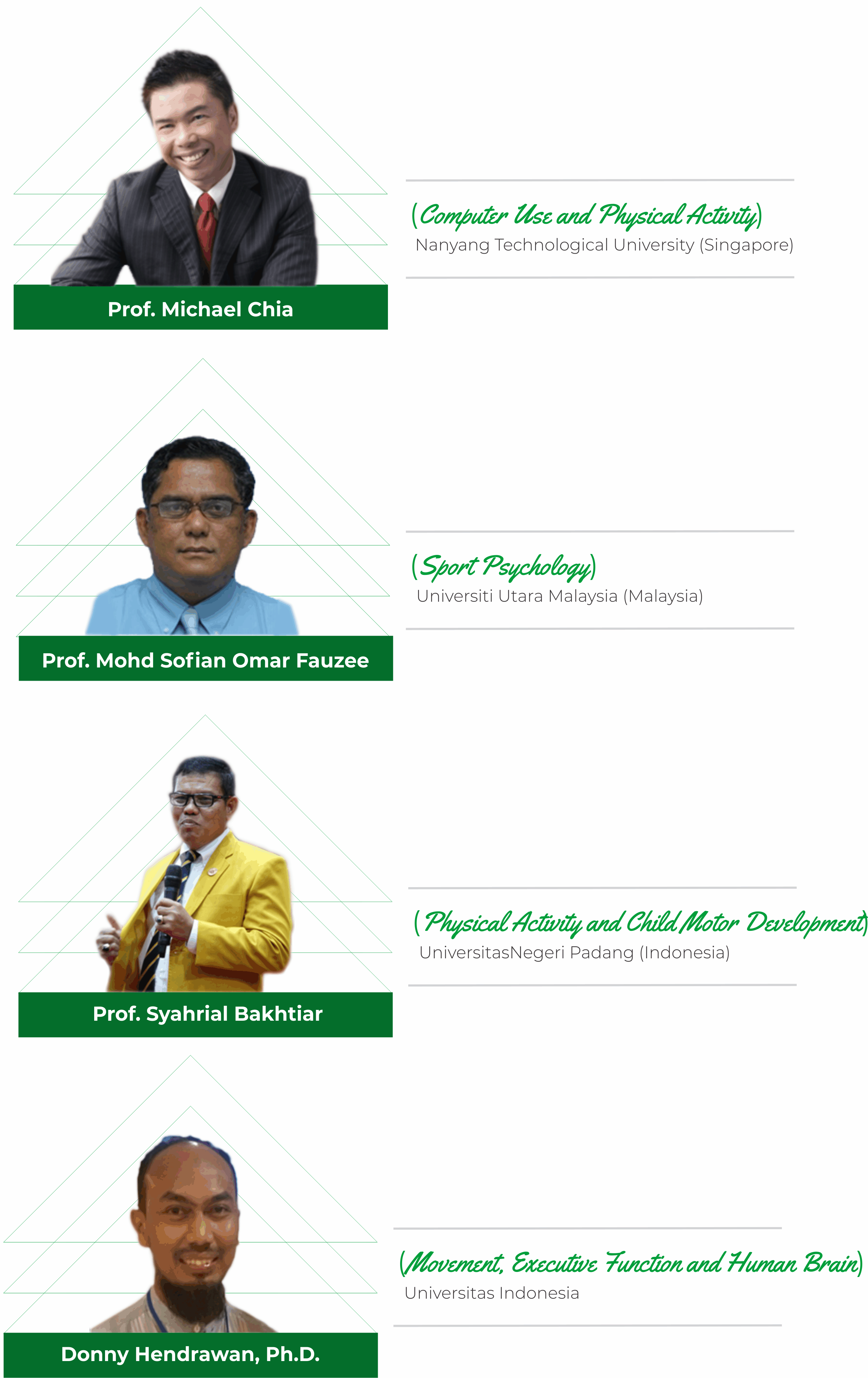October 26, 2019 – October 27, 2019
Keynote Speakers

Background
The acceleration of technology in recent decades has changed human behaviors significantly. People do many things manually in the past, for instance: sending messages through letter and the post man will send the letter and sender will get the reply in weeks. While, today, the message can be done in second in different country through smartphone or social media. It has changed both in positive and negative manners. In positive manner, activities are made easy. People do not have to make window shopping to buy cheaper products in the market. They just have to search in mobile applications and recognize the specifications needed. On the other hand, it also makes negative effects to human. Children tend to get game addiction and they cannot interact with peers as it used to be done by children in the last decades. It changes the way child interact socially.
One aspect which is influenced by the changes of technology is human physical activity. It occurs in human life span, in children, adolescents, and adults. In children, they have lack of physical activity as the time used for playing games using smartphone. For adolescents, they have sleep deprivation for the game addiction and tend to avoid social interaction in real life. For adults, they do not have make physical activities outside the building and have the physical problem like obesity and less exercise.
Movement, exercise and other physical activities have been used for therapy. Sensory integration and occupational therapy have long been used to treat children with special needs. They make the physical balance, crawling, matching pictures and other developmental activities like gross and fine motor works. Occupational therapy is also useful for therapy for chronical disease therapy like post-stroke motor problems. Other therapy like Applied Behavior Analysis has been also using physical activities to help children with autism to stimulate their function in having dyadic interaction with others. They can understand instructions of therapist to have a seat, make eye contact, recognize things. It helps children maximize the potentials of many physiology, executive function, brain plasticity and other concepts of Central Nervous System function in them.
Not only for medical purposes, movement and physical activity is important for psychological state. Many adolescents and adults spend weekend by swimming, hiking or jogging with family or colleagues to have fun and release stress in works or academic activities at school. They can share joy and other pleasant activities and feel better to continue regular works in workdays. Many adults have physical problem like obesity as they have more food intake and less exercise. This condition makes them inconvenient with physical appearance. The join groups of physical activities like gym, diet groups in social media to help them reduce bodyweight.
In social context, physical activity is needed to use. At school setting, children in kindergarten are taught physical activity to prepare them for school readiness by drawing, coloring pictures, dancing, learning new vocabularies through dancing and other activities. For adolescents, physical activity is important for their social interaction, they join the sport club for body fitness and make social interaction. It is also done by current adults.
Thus, human movement can be seen as the way to enhance the mental health in bio-psycho-social approach. This topic of conference is expected to explore the biological, psychological and social aspect human mental health of human physical activity.
Theme
Movement, Physical Activity and Exercise for Human Mental Health in 4.0 Industrial Era.
Sub theme :
| Mental Health | Neuroscience | Cyber Psychology |
|---|---|---|
|
|
|
Important Dates
| Description | Dates |
| Full paper submission | October, 2 2019 |
| Notification of acceptance | October, 5 2019 |
| Payment deadline | October, 9 2019 |
| Conference date | October, 26-27 2019 |
Advisory Boards & Committee
Advisory Board
- Prof. Dr. Rusdinal, M.Pd. (Dean of FIP Universitas Negeri Padang, Indonesia)
- Prof. Dr. Mudjiran, M.S., Kons. (FIP Universitas Negeri Padang, Indonesia)
- Prof. Dr. Neviyarni, M.S., Kons. (FIP Universitas Negeri Padang, Indonesia)
- (Assoc) Prof. Dr. Hadiyanto, M.Ed. (FIP Universitas Negeri Padang, Indonesia)
- Prof. Dr. Herman Nirwana, M.Pd.,Kons. (FIP Universitas Negeri Padang, Indonesia)
- Farah Aulia, M.Psi., Psikolog. (FIP Universitas Negeri Padang, Indonesia)
- Yanladila Yeltas Putra, S. Psi., M.A (FIP Universitas Negeri Padang, Indonesia))
Scientific Committee
- Farah Aulia, M.Psi.,Psikolog. (FIP Universitas Negeri Padang, Indonesia)
- Mardianto, S.Ag, M.Si. (FIP Universitas Negeri Padang, Indonesia)
Committee
- Chairperson: Yanladila Yeltas Putra, S. Psi., M.A
- Ifdil, M.Pd, Kons
- Zulian Fikry, M.A.
- Yuninda Tria Ningsih, M.Psi.,Psikolog
- Yolivia Irna Aviani, M.Psi.,Psikolog
- Tesi Hermaleni, M.Psi.,Psikolog
- Gumi Langerya Rizal, M.Psi.,Psikolog
- Ridayanna Primanita, M.Psi.,Psikolog
- Elrisfa Magistarina, M.Sc.
- Mario Pratama, M.A.
- Rahayu Hardianti Utami, M.Psi.,Psikolog
- Free Dirga Dwatra, M.A.
- Rindang Ayu, M.Si.
- Zakwan Adri, M.Psi.,Psikolog
- Devi Rusli, M.Si.
- Rinaldi, M.Si.
- Duryati, M.A.
- Suci Rahma Nio, M.Psi.,Psikolog
